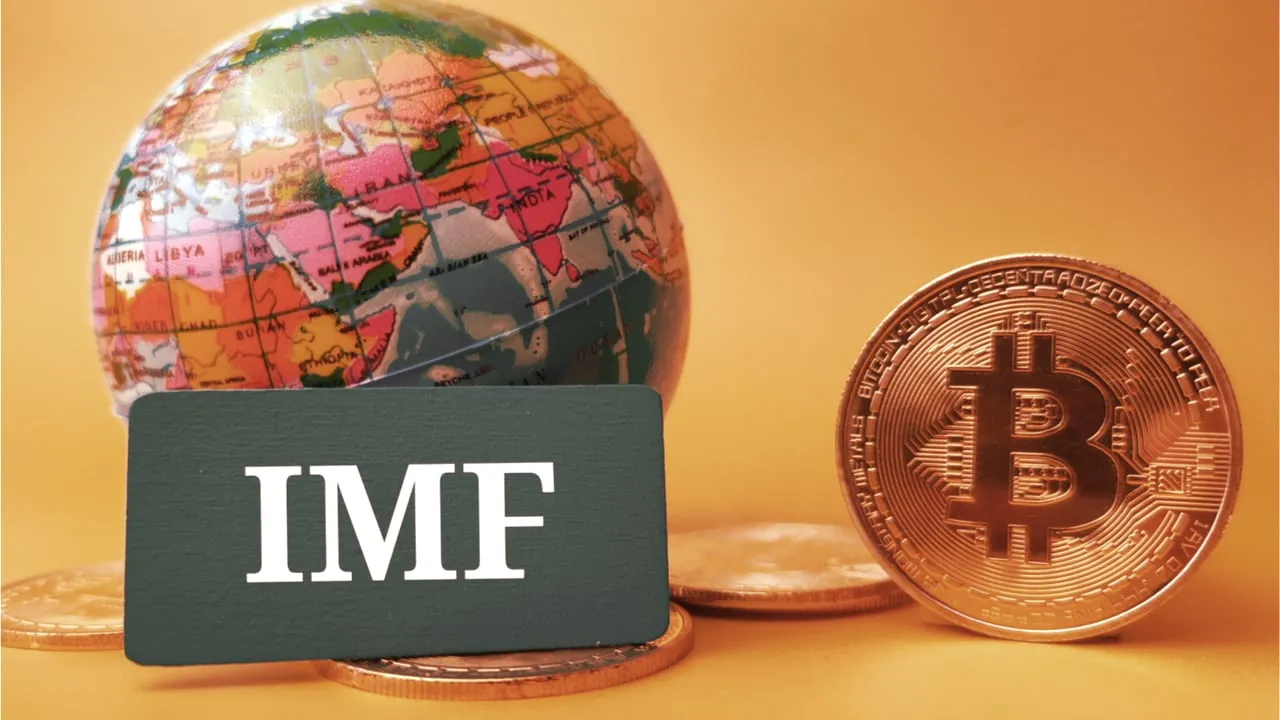In brief
- The price correlation between crypto and stock markets is increasing.
- This poses a risk to countries with heavy crypto adoptions, say three IMF economists.
For roughly a decade, Bitcoin and other cryptocurrencies were treated as hedges against other types of assets, such as stocks. But post-COVID, the prices of crypto assets are increasingly mirroring equities as more people add risk assets to their portfolio.
That could signal trouble ahead, say three officials with the International Monetary Fund (IMF), the U.N. institution known for providing conditional loans to member countries.
"The increased and sizeable co-movement and spillovers between crypto and equity markets indicate a growing interconnectedness between the two asset classes that permits the transmission of shocks that can destabilize financial markets," write economists Adrian Tobias, Tara Iyer, and Mahvash S. Qureshi for the IMF’s blog. They cite new research from Iyer demonstrating a "risk of contagion across financial markets."
As such, the trio calls for a global regulatory framework to mitigate threats to financial stability.
#Crypto and stocks are moving much more in sync and our latest research shows how this may be a risk to the stability of financial markets. See our latest #IMFblog for more. https://t.co/B5h2x4FPId pic.twitter.com/IvT6QwOe0e
— IMF (@IMFNews) January 11, 2022
A recent report from crypto asset data company Kaiko pegged the correlation coefficient between the price of Bitcoin and the S&P 500 stock index at 0.61. The correlation between BTC and the Nasdaq was 0.58. Correlation coefficients range from -1 to 1. The closer to 1, the more closely they move together; the closer to -1, the more they diverge.
The IMF authors note that the correlation doesn't just extend to U.S. equities markets but to developing economies as well. It places the 2020-21 correlation between BTC and the MSCI emerging markets index at 0.34, a 17x jump from before.
Yet whereas equities markets are traditionally regulated by their host countries, many nations are still determining how to deal with crypto assets. While the Securities and Exchange Commission has oversight of stock markets in the U.S., for example, the diversity of crypto assets and platforms—NFTs, DeFi governance tokens and stablecoins, for instance, all have different utilities—leaves the sector without a single regulatory authority. It's kind of like a shoddy NBA defense trying to employ zone coverage; sometimes it's unclear who's supposed to be guarding whom.
Tobias et al grasp that cryptocurrencies are swiftly gaining ground, writing, "Our analysis suggests that crypto assets are no longer on the fringe of the financial system." Though their post veers away from being too prescriptive, they argue that any regulatory framework should include requirements for banks on their exposure to crypto—and how banks can interact with such assets.
If not, they warn, the increased correlation between crypto and stocks "could soon pose risks to financial stability especially in countries with widespread crypto adoption."

